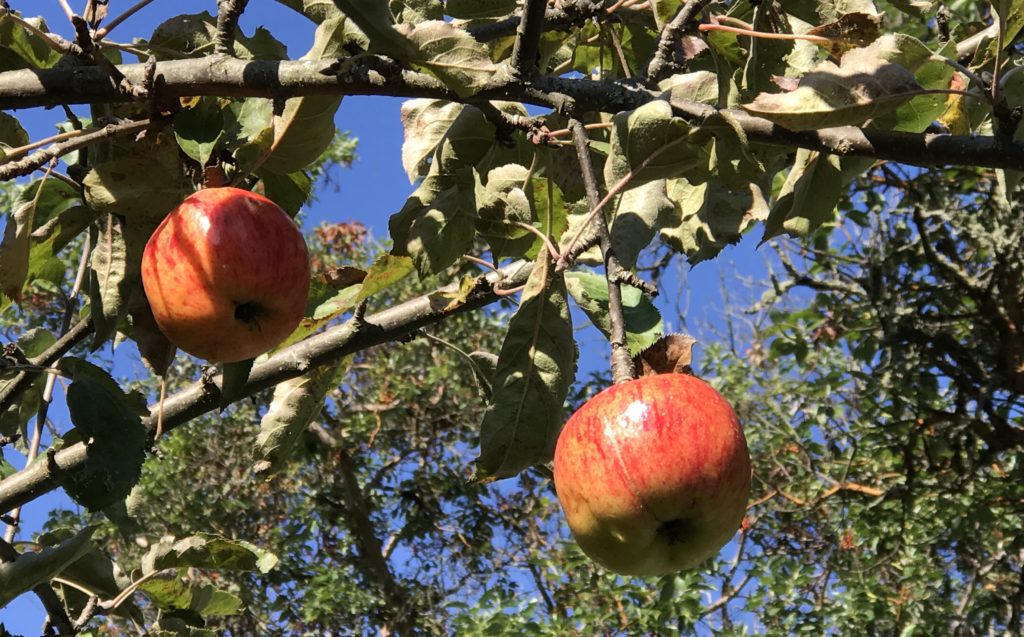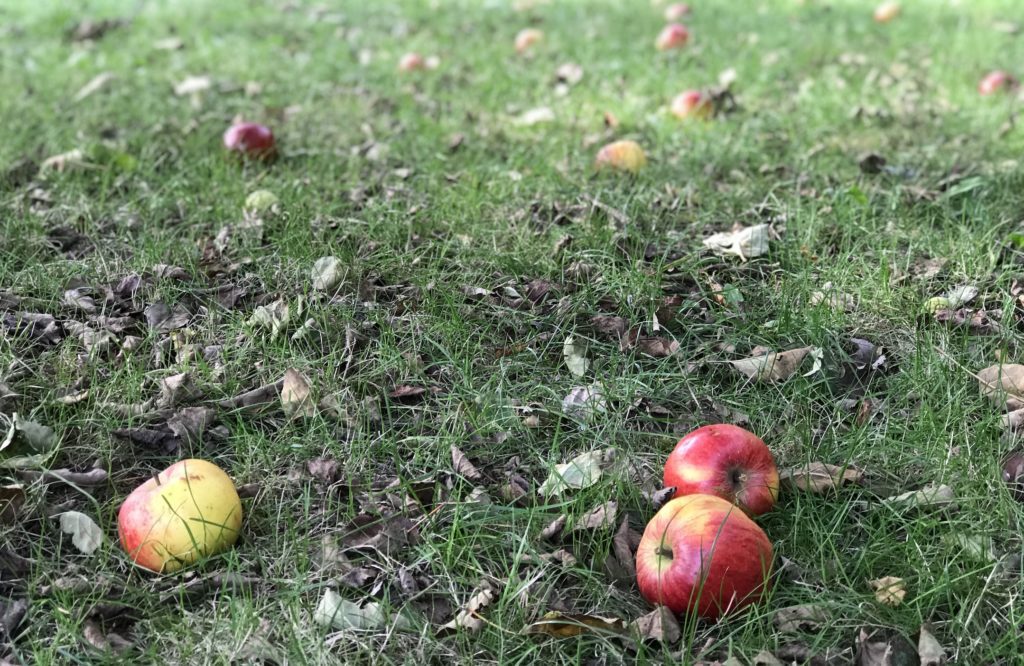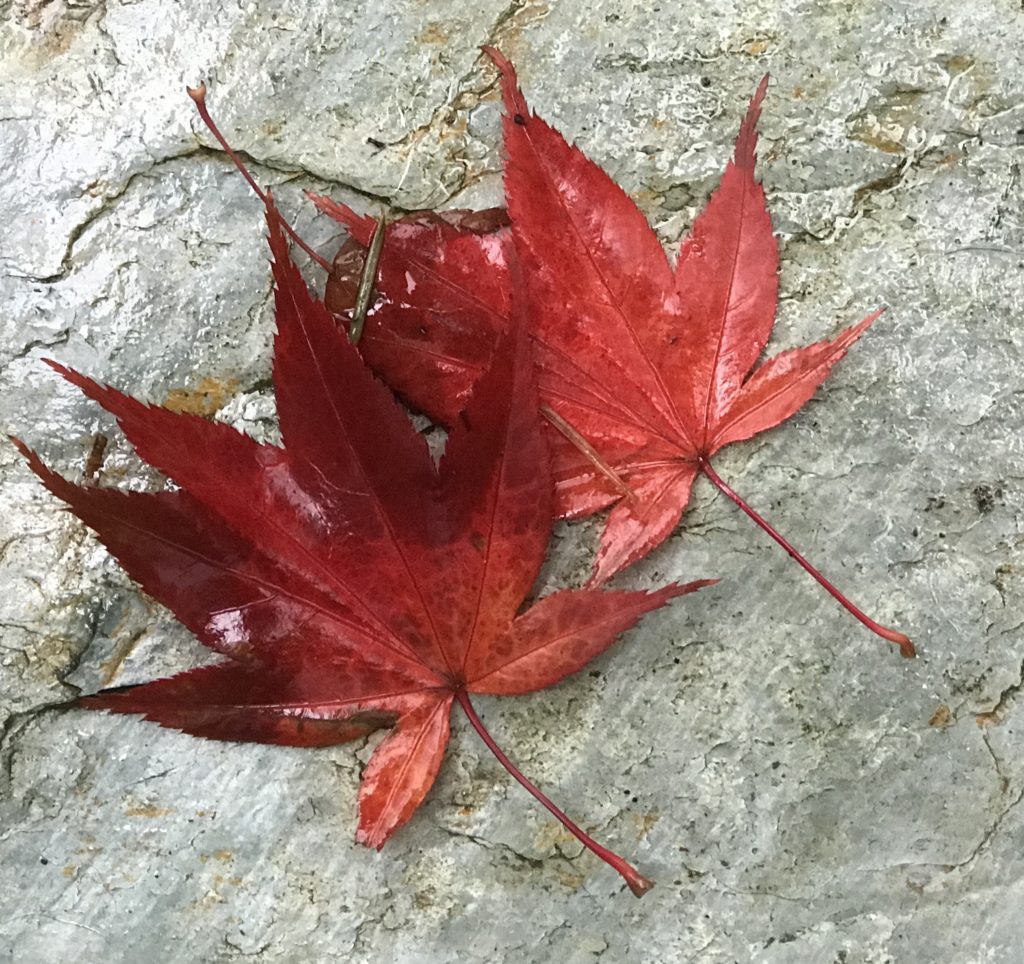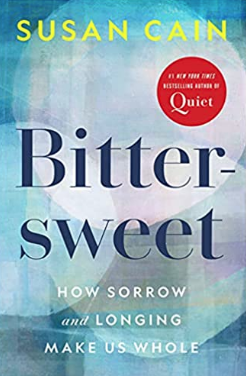
I love fall with its colors, coolness, beauty, and the poignancy of knowing that winter is coming and the rains will start. It is also the time of harvest.
At harvest time, I no longer work in nature. I work for her. Or, specifically for the Harvest.
And believe me, the Harvest is one tough boss. This year, her direction was non-negotiable.
“Pick your grapes, or I will let every bird within twenty miles of here know there’s a pop-up feast at your property– you’ll end up with nothing.”
She added:
“And pick all your apples, too, unless you want to see them worm-chewed and bird-eaten on the ground after the rains start. Then, you’ll still have to pick up their sludgy remains.”

I asked Harvest, “Could we wait or spread this out? I’ve other things I need to do – an art class, some writing.”
She stared me down. Waiting was not an option.
I never thought about the work that harvesting represented when I planted an orchard of fruit trees, grapes, and berries. I just thought, “I love fruit,” forgetting what harvesting 1600 pounds of apples would feel like. And not just 1600 but 1600 times at least four, between picking the apples, moving them into the garage, putting them in the van, transporting them to the cider press, and then lifting each apple into a barrel of bleach, then two barrels of rinse water, and then the crunching and pressing machine.
Fortunately, this year we had a small crop of apples, which turned out to be an enormous favor.
Harvest offered me a suggestion before putting me to work:
“Try going fallow on your other activities for a week. It might be good for you. See what happens. I go fallow for months each year. It helps.”

Creative fallow
During my week of harvest-inspired fallow time. I substituted hard physical labor for my usual creative work. My mind relaxed as it took a break from editing a book and other activities.
Instead, I spent time in nature, communing with the bugs and birds competing for my fruit.
I stared at trees, listened to music, sang, and dreamed, all of which turned out to be very good for my creative spirit.
As I sat in the sun picking 13,270 grapes from their stems, I listened to a series of folk/singer-songwriter songs on Spotify (“Kate Wolf radio” for those who are interested.) Many of them felt perfect for fall, blending sweetness and sorrow, beauty and impending loss, gratitude and grief.
The music often carried the sound of deep longing for past love, unrequited love, or love imagined. In heartfelt lyrics, I heard a plea for a kinder, better world, with no guarantees that such desires would be fulfilled.
Singer-songwriter/folk music is not your secure-it’s-all-going-to-be-good “Happy Days are Here Again” kind of music. It is often what author Susan Cain labels “bittersweet” in her book by that name.
The music I was hearing (think Leonard Cohen, Joni Mitchell, Kate Wolf, Jeff Buckley) welcomes grief and loss as part of the cycle of life. The music makes it OK to feel flawed and suggests the beauty within those flaws.
The singers remind us that gold leaves will always turn to brown and that we can hold the memory of the moment when autumn light crowned them in glory.

Bittersweet
In her brilliant new book Bittersweet, Susan Cain does for melancholia what she did for introversion in her blockbuster, Quiet. She shows us the power of deep empathy and sorrow in a culture where people are admonished to “put on a happy face.” She makes it OK to be moved and humbled by the impermanence of life.

Many poets and songwriters know this place of bittersweet beauty with all its complexity, like a fine wine you can never quite succeed at describing.
Paradoxically, instead of making me depressed (and yes, I occasionally cried), the bittersweet music buoyed me, making it feel OK to feel sadness and grief for what is happening to the earth.
I found joy in listening to a world of sound that mixes beauty, mystery, longing, grief, while the knowledge that life is forever changing.
Leaves fall from trees, branches drop their fruit, and we can’t hold on to what we loved.
The Song of the Wandering Aengus
I had heard the phrase “Golden apples of the sun” without knowing it came from the closing line of the poem, “The Song of the Wandering Aengus” by W.B. Yeats. But when plucking my grapes off their vines, I heard Yeats’ poem sung by Caroline Herring, I was spellbound. The song captured a fall-like moment of yearning, sorrow, reflection, beauty, and hope.
The narrator in Yeats’ poem, now old, remembers the “glimmering girl with apple blossoms in her hair” who once called to him. He writes:
Though I am old with wandering
Through hollow lands and hilly lands,
I will find out where she has gone,
And kiss her lips and take her hands;
And walk among long dappled grass,
And pluck till time and times are done,
The silver apples of the moon,
The golden apples of the sun.
Hearing the song felt like an arrow piercing my longing.
We all carry a longing that is not meant to be filled, for it lives in the soul in a place that can never be filled. It wants, instead, to be expressed. And that expression can come through a poem, a song, a soup, or a kiss.
Blessing the Harvest
The Harvest was a tough master, but I thanked her when she declared us done.
I left exhausted and renewed.
I felt blessed to have spent time in nature with many a grape in my mouth. I had been warmed by the sun, comforted by the music, and uplifted.
In a beautiful world that has too much pain, I emerged more ready than ever to create.










2 Responses
Oh Sally, once again you have pierced my heart and expressed my souls in words I could not have found. Thank you, thank you! I always feel I have a companion in this lonely world when I read your blog. Blessings! Wendy
Love;y!